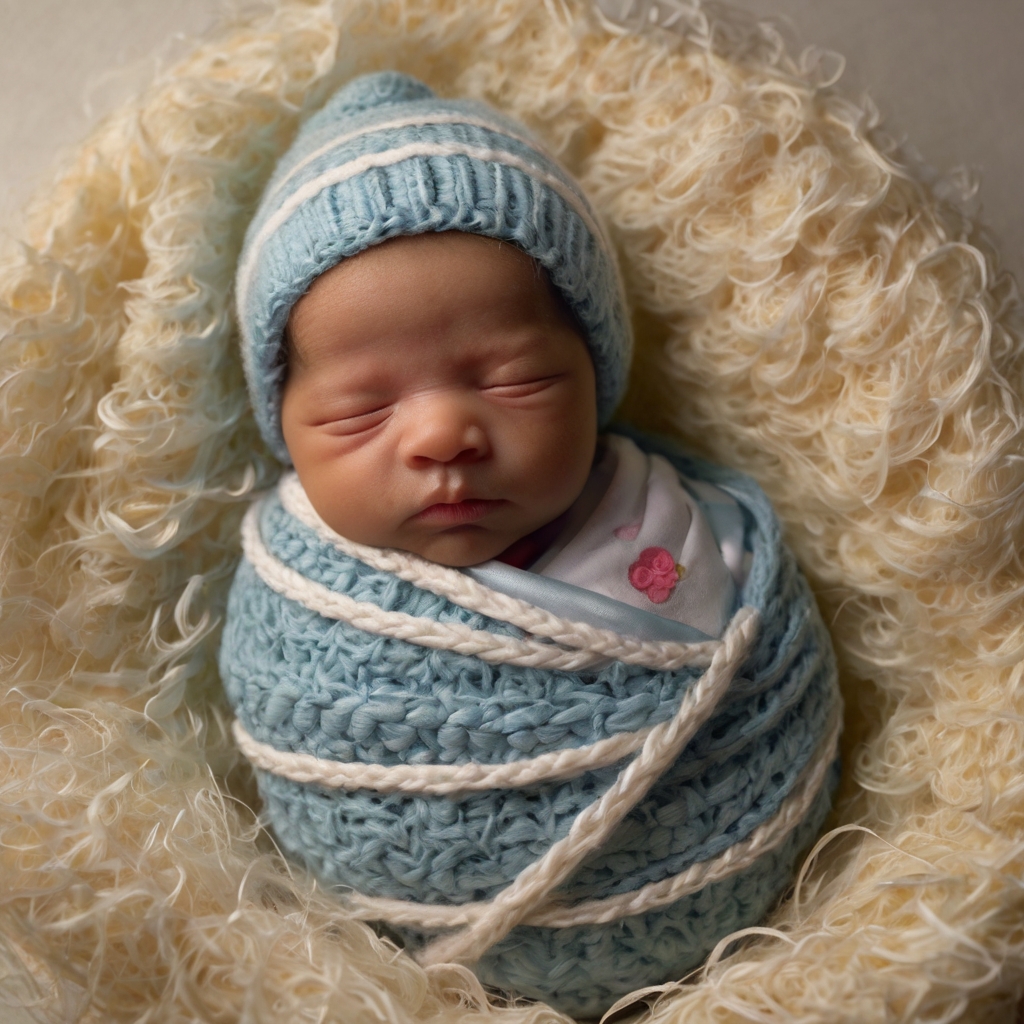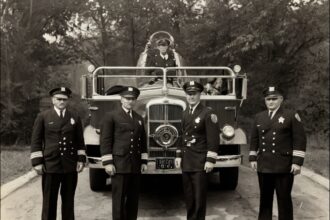NICU Cuddler

About 15 million babies worldwide are born prematurely each year. These infants need specialized care in Neonatal Intensive Care Units (NICUs). Medical technology helps them survive, but human touch can substantially affect their development. NICU cuddlers step in to make a real difference.
Hospitals nationwide have embraced NICU cuddler programs as vital support systems. These special volunteers, known as NICU baby cuddler volunteers, comfort premature infants when parents can’t be there. Long-running cuddler programs show better infant outcomes, lower stress levels, and better quality of care.
This piece details how NICU cuddler volunteers help care for premature infants. It covers the science behind their work and shows how these programs benefit families, medical staff, and the tiny patients in their care.

Table of Contents
- 1 The Growing Need for NICU Cuddler Programs
- 2 Scientific Evidence Behind Baby Cuddling
- 3 Impact on Hospital Operations
- 4 Supporting Families Through Difficult Times
- 5 Transforming Lives Beyond the NICU
- 6 Here are some FAQs about the NICU cuddler program:
- 6.1 What is a NICU cuddler?
- 6.2 Do NICU nurses cuddle babies?
- 6.3 How to support a friend with a baby in NICU?
- 6.4 Can you stay in the NICU with your baby?
- 6.5 Do you get paid to be a cuddler?
- 6.6 Can you kiss your NICU baby?
- 6.7 What does a cuddler do?
- 6.8 Can parents hold baby in NICU?
- 6.9 Do babies in NICU get held?
- 6.10 What is a critical cuddler?
- 6.11 How happy are NICU nurses?
The Growing Need for NICU Cuddler Programs
Healthcare communities worldwide face a growing challenge with rising preterm birth rates. The numbers paint a stark picture – 13.4 million babies were born preterm globally in 2020. This represents nearly 10% of all births. The need for specialized neonatal care and support systems like NICU cuddler programs has never been greater.
Rising premature birth rates globally
The burden falls heaviest on Southern Asia and sub-Saharan Africa. These regions account for about 65% of all preterm births worldwide. Many healthcare facilities there struggle to provide adequate care and meet the growing need for specialized neonatal services.
Challenges facing NICU departments
Today’s NICU departments deal with several pressing issues that make volunteer support programs vital:
- Staff shortages are common, while 12% of births lead to NICU admissions
- They lack essential resources and infrastructure
- Medical staff faces mounting workloads
- Care needs to stay consistent across shifts
Why human touch matters in neonatal care
Studies have showed how deeply human touch affects premature infant development. Babies who get regular physical contact see real benefits in their early development. This becomes even more vital since many premature infants spend long periods in incubators with limited human contact.
Science tells us something remarkable – babies’ positive touch experiences in hospitals lead to stronger brain responses to gentle touch later in life. On top of that, research shows these infants gain weight better and leave the hospital sooner.
NICU cuddler programs help hospitals in more ways than just comforting babies. These programs step in when parents can’t be there – especially vital for families who live far from hospitals or have other commitments. NICU cuddler volunteers play a key role. They support busy medical staff and make sure every infant gets that essential human contact needed for the best possible development.
Scientific Evidence Behind Baby Cuddling
Scientific research shows strong evidence about how NICU cuddler programs help infant development. Babies who get regular human touch from NICU baby cuddler volunteers show remarkable progress in their development.
Research on touch and infant development
Newborns communicate first and foremost through touch. Preterm infants who receive gentle human touch therapy twice daily show improvements in body weight, temperature regulation, and pulse rate stability. Cuddler programs that provide direct human contact for one-hour sessions once or twice weekly lead to better immediate health and later development.
Effect on vital signs and growth rates
NICU cuddler programs offer proven physical benefits. The key improvements include:
- Stabilized vital signs and better weight gain patterns
- Better sleep patterns and more organized behavioral states
- Steadier breathing rates and heart rhythms
Babies who get regular cuddles through volunteer programs sleep better and fuss less. The skin-to-skin contact helps them develop better autonomic functions and more predictable sleep patterns.
Long-term benefits for premature babies
NICU cuddler programs help babies way beyond their hospital stay. A newer study, published in 20 years after the initial research, found remarkable long-term benefits for babies who got consistent human touch during their NICU stay. These infants were 39% more likely to survive into adulthood and showed better social outcomes, including:
- Lower levels of aggressive behavior
- Less impulsivity and hyperactivity
- Better educational outcomes and higher earning potential
Brain response studies with 125 infants showed that positive touch experiences in the NICU created stronger brain responses to gentle touch later in life. Early physical contact also helps establish secure attachment patterns and improves mother-child interactions.
These scientific findings explain why many hospitals now see NICU cuddler volunteers as vital to their complete care approach. The evidence proves these programs boost immediate medical care and contribute by a lot to long-term developmental outcomes.
Impact on Hospital Operations
NICU cuddler programs play a vital role in hospital operations. These programs provide much-needed support to medical staff while maintaining high standards of care. What started as simple volunteer initiatives has evolved into well-laid-out support systems that work alongside professional medical care.
Supporting overwhelmed medical staff
Neonatal intensive care unit nurses often balance multiple critical tasks. This makes it hard to provide constant nurturing touch to every infant. NICU cuddler volunteers help fill this gap by offering dedicated support while medical staff focus on essential procedures. Research shows that nurses can better attend to medical needs when cuddlers comfort the babies.
These volunteers do more than just hold infants. They contribute to daily operations by:
- Managing inventory and stocking supplies
- Organizing blanket closets
- Assembling informational packets
- Supporting therapeutic activities
Integration with existing NICU protocols
Hospitals have developed complete protocols to naturally merge cuddler programs into their existing care systems. Volunteers go through thorough preparation, including:
Mandatory Requirements:
- Completion of a 4-hour program training
- Background checks and CPR certification
- Updated immunization records
- Minimum commitment of 50 hours annually
The integration process works well, with 95% of care procedures now including supportive touch when needed. Many facilities run their programs from early morning until late evening to ensure consistent support throughout the day.
Cost-benefit analysis of cuddler programs
NICU cuddler programs show promising financial and operational benefits. Studies point to a potential 6-day reduction in length of stay for certain patients. Both hospitals and families save money because of this reduction.
The programs offer several operational advantages:
- Reduced need for breakthrough medication doses
- Better allocation of nursing resources
- Improved patient care efficiency
- Higher parent satisfaction rates
Many hospitals see rapid program growth. Some facilities grew from two volunteers to 36 within 15 months. This growth shows the program’s success and its positive effect on hospital operations. These programs just need more volunteers, and many facilities keep waiting lists for volunteer positions.

Supporting Families Through Difficult Times
Life in the NICU can drain parents both emotionally and physically. NICU cuddler programs serve as a vital support system that helps parents direct their way through tough times while their infants get constant care and attention.
Bridging the gap when parents can’t be present
Parents often find it hard to stay at their baby’s bedside constantly. NICU cuddler volunteers step in to help, especially when families struggle with transportation or need to care for other children at home. These devoted volunteers make sure babies get vital human contact when families can’t be there. This support especially helps:
- Low-income families with limited transportation
- Single parents juggling multiple responsibilities
- Families living far from the hospital
- Parents managing work commitments
Building trust with families
Strong bonds develop between NICU cuddler volunteers and families through regular communication and shared care experiences. Studies reveal that 100% of parents value volunteer cuddling programs. Parents learn about the program’s benefits in detail and must approve before volunteers can interact with their babies.
Trust grows beyond simple care. These programs help parents feel more confident about their baby’s care because trained volunteers provide comfort when they’re away. This peace of mind lets families take care of themselves while staying connected to their infant’s care.
Creating a support network
NICU cuddler programs help build detailed support networks for families. These networks often include:
Cuddlers create an atmosphere where parents connect with others who face similar challenges. Research shows that NICU families with access to cuddler programs feel less alone and handle emotional stress better.
Hospitals have grown their support services to include peer-to-peer mentoring, where experienced NICU parents guide new families. These relationships often last beyond the hospital stay and create lasting support networks that help both parents and children.
These support networks make a real difference. Studies show that parents with peer support gain more confidence, solve problems better, and cope more effectively. The support systems also reduce stress and anxiety while encouraging more frequent hospital visits.
Transforming Lives Beyond the NICU
NICU cuddler programs reshape the scene well beyond hospital walls. These programs shape infant development and build community connections. Research reveals babies who got consistent cuddling support showed better development at 18-24 months. This marks just the beginning of their success story.
Success stories from hospitals
Penn Medicine’s Chester County Hospital’s NICU cuddler program doubled its volunteer numbers within six months of launch. The program’s soaring win comes from its detailed approach. Infants receive positive touch during medical procedures while volunteers and families build meaningful connections.
Christiana Care Health System’s dedicated volunteers gave over 800 hours of comfort to nearly 1,000 babies in just one year. These numbers tell a story of both quantity and quality. Studies show babies who get regular cuddling have stable vital signs, better weight gain, and improved feeding patterns.
Long-term impact on infant development
Research shows key developmental advantages for infants in cuddling programs:
- Better short-term results including weight gain and lower stress levels
- Boosted language development and environmental awareness
- Stronger somatosensory responses to gentle touch
- Improved sleep patterns and more stable behavioral states
A groundbreaking study revealed infants who received steady cuddling support showed remarkable improvements in stress management even 10 years later. Researchers measured this through cortisol levels during challenging situations like school presentations.
Building community connections
NICU cuddler programs have grown into powerful community-building initiatives. Burnaby Hospital’s program makes shared work possible between volunteers, medical professionals, and families working toward the best outcomes. The program’s reach goes beyond individual babies and creates lasting bonds between volunteers and the broader hospital community.
These programs see growing interest, with many facilities having 18-24 month waiting lists for volunteer spots. This overwhelming response shows the program’s value and the community’s commitment to supporting their smallest members.
The program’s benefits touch many lives. Akron Children’s Hospital sees multiple generations of families volunteer together. They create a legacy of service while helping vulnerable infants. Volunteers often build deep connections with the families they help and provide emotional support during tough times.
NICU cuddler programs’ success has led hospitals to grow their initiatives. Many facilities now run volunteer programs 24 hours a day, 7 days a week. This round-the-clock support leads to better outcomes. Studies show babies who get regular cuddling often leave hospital earlier and follow better developmental paths.
NICU cuddler programs show how volunteers can reshape healthcare and improve patient outcomes. Studies prove their vital role in improving both immediate health metrics and long-term development. These programs help tiny patients through human touch and give much-needed support to medical staff and families in tough times.
Hospitals nationwide share an undeniable truth: human connection matters in modern medical care. Babies who get regular cuddles display better vital signs, gain more weight, and show improved development well into childhood. Medical facilities see shorter hospital stays, less stressed staff, and stronger community ties through their cuddler initiatives.
These programs offer more than volunteer opportunities – they bring hope, healing, and genuine human connection. Their growth and the overwhelming response from volunteers prove that simple acts of kindness create lasting changes in healthcare. More hospitals now start these programs, helping thousands of premature babies get the gentle touch they need while building stronger communities around them.
Here are some FAQs about the NICU cuddler program:
What is a NICU cuddler?
A NICU cuddler is a trained volunteer who provides comfort to newborns in the neonatal intensive care unit. These volunteers hold, rock, and soothe babies to help them feel secure and supported during their hospital stay. NICU cuddler programs are essential for newborns who may not have parents present at all times due to various circumstances.
Do NICU nurses cuddle babies?
Yes, NICU nurses often cuddle babies as part of their care, especially when providing comfort and emotional support. However, their primary role is medical care, so NICU baby cuddlers assist in providing additional nurturing. The NICU cuddler program helps ensure that babies get the comforting touch they need to thrive.
How to support a friend with a baby in NICU?
Supporting a friend with a baby in NICU can include offering emotional support, helping with meals, or providing transportation. Encouraging them to take breaks and rest while reassuring them of the baby’s progress can also be helpful. Suggesting a NICU cuddler program near me could also be a way to provide additional care for their baby when they can’t be present.
Can you stay in the NICU with your baby?
Yes, many hospitals allow parents to stay with their baby in the NICU. Some facilities even offer overnight accommodations or family rooms. However, if parents need to step away, NICU baby cuddlers ensure their infant continues to receive care and nurturing.
Do you get paid to be a cuddler?
No, NICU cuddler roles are typically volunteer positions. NICU baby cuddler programs rely on compassionate individuals willing to dedicate their time to provide emotional and physical comfort to newborns.
Can you kiss your NICU baby?
Parents are generally allowed to kiss their NICU baby, but it depends on hospital policies and the baby’s health. Proper hygiene is essential to protect vulnerable infants. NICU cuddler volunteers are trained to avoid direct contact like kissing to ensure the babies’ safety.
What does a cuddler do?
A cuddler in a NICU cuddler program helps soothe and comfort infants by holding, rocking, or singing to them. These volunteers provide the nurturing touch that is essential for a baby’s development, especially for those with extended hospital stays. NICU baby cuddler volunteers near me can be lifesavers for infants and families.
Can parents hold baby in NICU?
Yes, parents are encouraged to hold their baby in the NICU, including engaging in skin-to-skin contact, which is vital for bonding and recovery. However, NICU baby cuddlers can step in to hold and comfort infants when parents are unavailable.
Do babies in NICU get held?
Yes, babies in the NICU are held frequently, either by parents, nurses, or NICU cuddlers. Holding and cuddling are vital for a baby’s emotional and physical development. The NICU cuddler program ensures every baby gets the attention they need.
What is a critical cuddler?
A critical cuddler is a NICU cuddler specifically trained to care for infants with more severe medical needs. These volunteers understand how to hold and soothe critically ill babies without interfering with medical equipment or care.
How happy are NICU nurses?
NICU nurses often report high job satisfaction due to the rewarding nature of caring for fragile newborns. However, the job can be emotionally challenging. Programs like the NICU cuddler program help lighten their emotional load by ensuring the babies receive consistent nurturing.

